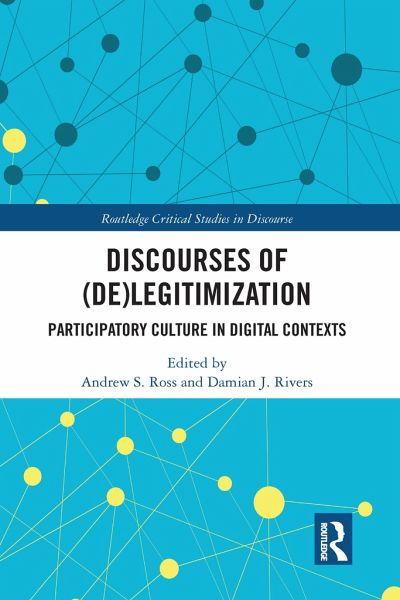
Discourses of (De)Legitimization
Participatory Culture in Digital Contexts
Herausgeber: Ross, Andrew S.; Rivers, Damian J.

PAYBACK Punkte
28 °P sammeln!
This volume provides a comprehensive analysis of the ways in which digital communication facilitate and inform discourses of legitimization and delegitimization in contemporary participatory cultures. The book draws on multiple theoretical traditions from critical discourse analysis to allow for a greater critical engagement of the ways in which values are either justified or criticized on social media platforms across a variety of social milieus, including the personal, political, religious, corporate, and commercial. The volume highlights data from across ten national contexts and a range of...
This volume provides a comprehensive analysis of the ways in which digital communication facilitate and inform discourses of legitimization and delegitimization in contemporary participatory cultures. The book draws on multiple theoretical traditions from critical discourse analysis to allow for a greater critical engagement of the ways in which values are either justified or criticized on social media platforms across a variety of social milieus, including the personal, political, religious, corporate, and commercial. The volume highlights data from across ten national contexts and a range of online platforms to demonstrate how these discursive practices manifest themselves differently across a range of settings. Taken together, the seventeen chapters in this book offer a more informed understanding of how these discursive spaces help us to interpret the manner in which digital communication can be used to legitimize or delegitimize, making this book an ideal resource for students and scholars in discourse analysis, sociolinguistics, new media, and media production.














